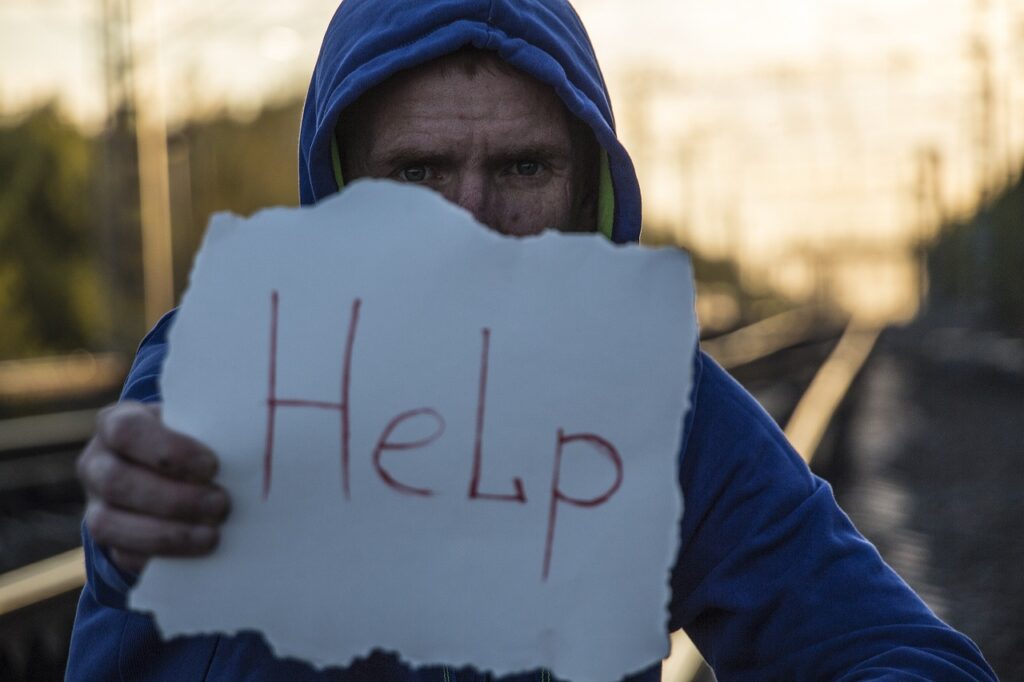In the intricate dance of relationships, there are moments when the path becomes a bit more challenging to navigate. Anxiety, a complex and pervasive force, can cast shadows on the bonds we share with our partners. Understanding its impact and learning to communicate effectively in its presence can be the key to strengthening the bridge that connects two hearts. In this exploration, we delve into the ways anxiety may influence your relationship, unravelling the communication challenges it introduces. More importantly, we’ll discover insights and tips for both partners to foster understanding and build resilience in the face of anxiety-related challenges.
The Impact of Anxiety on Relationships
Anxiety is like a silent intruder, affecting not just the individual experiencing it but also those around them. It can manifest in various forms, from generalised anxiety to specific phobias or social anxiety. In relationships, the impact of anxiety can be profound, creating ripples that touch upon every aspect of the connection.
One of the primary challenges is the way anxiety influences communication. Partners may find it difficult to express themselves openly, fearing judgement or rejection. Conversely, the partner of someone experiencing anxiety may struggle to comprehend the seemingly irrational fears or worries. This miscommunication can create a divide, leading to frustration and resentment if left unaddressed.
Navigating Communication Challenges
Building bridges beyond anxiety begins with acknowledging and understanding the communication challenges it presents. Here are some key aspects to consider:
Create a Safe Space for Open Communication
Encourage an environment where both partners feel safe expressing their thoughts and emotions without judgement. Foster a sense of understanding and empathy, recognising that anxiety is a shared challenge.
Develop Active Listening Skills
Effective communication involves not just speaking but also listening actively. Pay attention to your partner’s concerns and feelings, validating their experiences without trying to immediately solve the problem. Sometimes, a listening ear can be the bridge to connection.
Use “I” Statements
When discussing emotions and concerns, frame your thoughts using “I” statements to express personal feelings without assigning blame. This can help prevent defensiveness and encourage a collaborative problem-solving approach.
Fostering Understanding and Building Resilience
Beyond communication, cultivating resilience is essential for weathering the storms that anxiety may bring into a relationship. Consider the following tips:
Educate Yourself About Anxiety
Knowledge is a powerful tool. Both partners should invest time in learning about anxiety, its various forms, and coping mechanisms. This shared understanding can strengthen the foundation of the relationship.
Seek Professional Support
Don’t hesitate to explore professional help, such as couples therapy, individual counselling or private treatment. Delamere looks at underlying factors that drive your behaviour and can provide treatment, coping mechanisms and strategies to navigate anxiety-related challenges.
Practice Self-Care Together
Building resilience involves taking care of oneself and each other. Establish self-care routines that both partners can engage in, promoting mental and emotional well-being. This shared commitment to self-care creates a supportive atmosphere.
Final Thoughts
In the realm of relationships, anxiety can be a formidable opponent, but it doesn’t have to be a destructive force. By recognising the communication challenges it introduces and actively working to foster understanding and resilience, couples can build bridges that stand strong in the face of adversity. Remember, it’s not about eliminating anxiety but rather learning to dance with it, hand in hand, as partners on a journey of shared growth and connection.










I’m addicted to pizza.
I used to smoke 300 cigarettes a day but now cut down to 150
My girlfriend is a cocaine addict. Yes I know, run, now. Unfortunately love gets in the way.
She’s been doing it for many years, way before me. I’ve been with her over 6 years. It was bad in the beginning, then it was better, now it’s becoming every couple of days. She wants to stop, but I can’t see an end to it.
I’m exhausted. She usually sleeps all day. It takes me a while to switch my mood, but she said that’s what she can’t deal with, me avoiding her. But I can’t help it, I’m feeling really down!! She’s saying I’m not showing love and affection. But how can I when she just won’t stop doing cocaine!! I feel like it’s a way to say what she’s doing is OK. It’s not!! And she’s not getting any help either!
Theres no handbook for having a girlfriend with a cocaine addiction. I don’t know how to cope with it. I don’t know how to handle it. I don’t have support! Who do I lean on ?
Im addicted to Twix bars. pls someone help me –
i GET ANXIOUS WHEN i SEE MY BANK ACCOUNT WHAT CAN I DO?
Can u get treatment there on the NHS? I am sick of my condition. I asked my GP and they told me to sod off.
I am a crack cocaine addict for two years. I try to stop but it is impossible. The high is too good.
I have AIDS and do not take meds. Theyre to expensive.
I am a sex addict. Some people call my kind nymphomaniac but I sleep with on average 3 or 4 men a night sometimes 6 or 10. I love it. I am only 22 fit and ready.